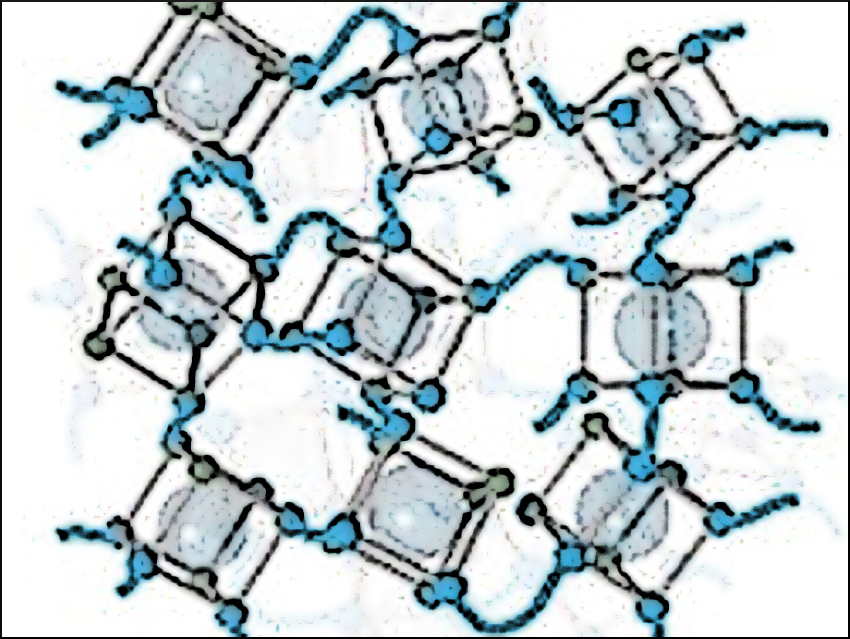Controlling the pore size in porous materials can be challenging. One approach is to use molecular cages, such as metal–organic polyhedra (MOPs), as pre‐synthesized building blocks that retain their porous structure even in the amorphous state. MOPs based on dirhodium paddlewheels (RhMOPs), for example, are robust porous building blocks that are stable in solution and in the solid state. Ligands with two binding sites can link RhMOPs together, resulting in porous coordination polymer particles or supramolecular colloidal gels.
To process such molecular cages, they need to be manipulated in solution. To make them soluble and avoid aggregation, bulky groups like alkyl chains can be permanently attached. However, these may affect the gas sorption performance of the polymerized products.
Shuhei Furukawa, Kyoto University, Japan, Arnau Carné-Sánchez, Kyoto University and Barcelona Institute of Science and Technology, Spain, and colleagues have used bulky imidazole ligands bearing alkyl groups as a solubilizer for RhMOPs. These bulky ligands are not permanently attached. They are instead replaced by the connecting ligands during the assembly phase (pictured below). This leads to polymers with an increased gas sorption capacity. According to the researchers, the method also could be used to make functional polymers from other insoluble cages.

- A Coordinative Solubilizer Method to Fabricate Soft Porous Materials from Insoluble Metal-Organic Polyhedra,
Arnau Carné-Sánchez, Gavin A. Craig, Patrick Larpent, Vincent Guillerm, Kenji Urayama, Daniel Maspoch, Shuhei Furukawa,
Angew. Chem. Int. Ed. 2019.
https://doi.org/10.1002/anie.201901668



